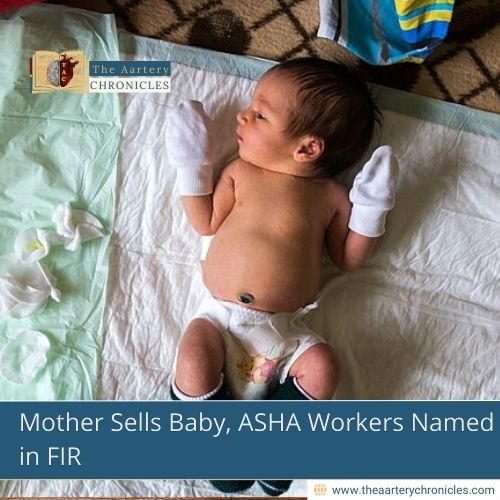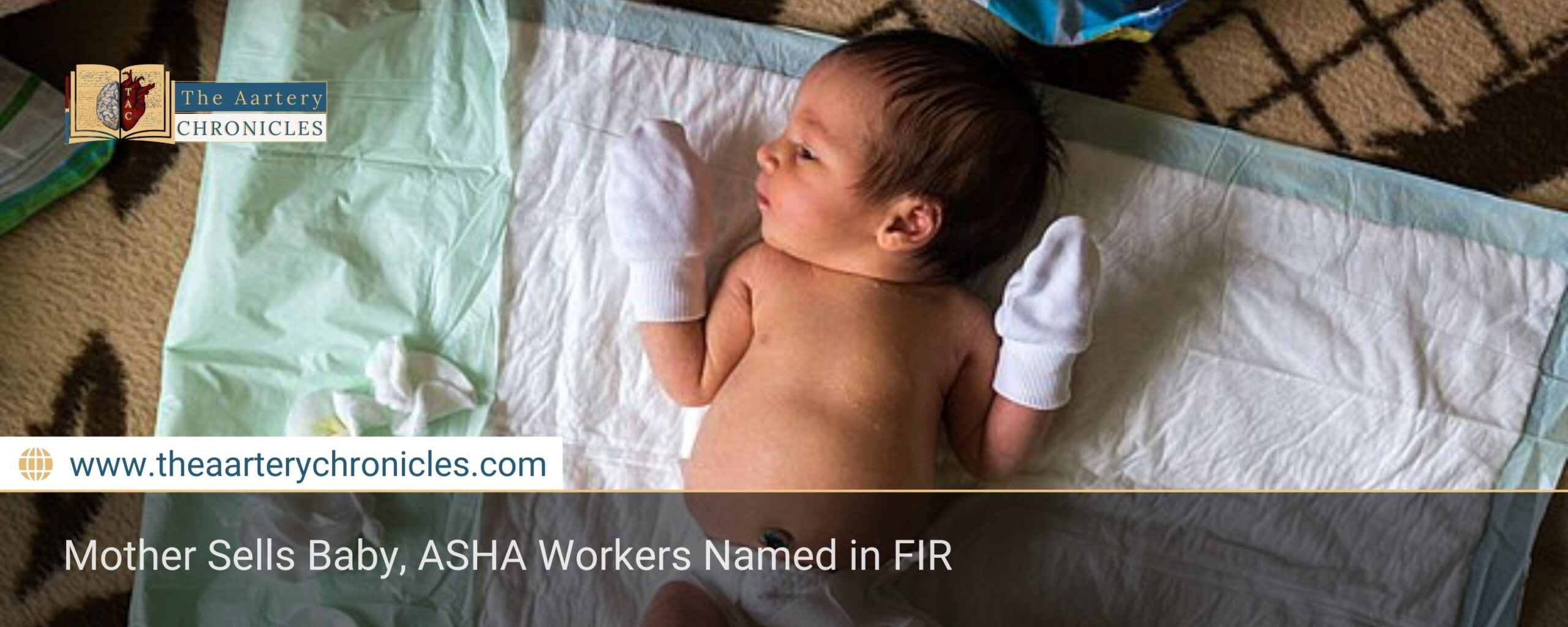

Mother Sells Baby, ASHA Workers Named in FIR
A troubling case has come to light from Sivasagar district in Assam, where a 22-year-old unmarried woman allegedly sold her newborn child for Rs 50,000. The woman had recently given birth at the local civil hospital, and authorities were reportedly aware of the possibility that the child could be sold.
Child Welfare Officials Intervened But Too Late
The Child Welfare Committee (CWC) had been informed and had visited the hospital to counsel the mother and her family. Officials tried to persuade them not to go through with any informal or illegal arrangements involving the baby.
Despite this intervention, the child was reportedly handed over to a couple from Sapekhati, a town in the neighbouring Charaideo district.
Baby Recovered, Five People Arrested
During the investigation, officials uncovered what appears to be a larger network behind the sale. Some ASHA workers community health workers assigned to assist mothers and newborns are believed to have played a role in organising the sale. Sources say some of them may have been involved in earlier, similar incidents.
Legal Action Taken
An FIR was filed by the District Child Protection Unit at the Sivasagar police station. Police are now working to determine the full extent of the case and identify others who may have been involved.
Why This Case Matters
This incident highlights serious gaps in the protection of mothers and infants in public healthcare systems:
- Vulnerable women may feel they have no support after childbirth.
- Informal adoptions or child sales can put babies at serious risk.
- Some healthcare workers may misuse their position and access to personal information.
- There is a need for better monitoring inside hospitals to prevent such cases.
What Needs to Be Done
Experts say cases like this should lead to:
- Better mental health and legal support for new mothers, especially those without family or financial help.
- Strict action against health workers found misusing their role.
- Improved hospital protocols to detect and prevent trafficking or illegal adoptions.
- More awareness about safe and legal adoption options for couples and families.
Conclusion
This heartbreaking situation shows that more needs to be done to protect children and support vulnerable mothers not just with medical care, but with emotional, financial, and legal help. Authorities are continuing the investigation to ensure justice is served and to prevent such incidents in the future.
Source: Inputs from various media Sources

Priya Bairagi
Reviewed by Dr Aarti Nehra (MBBS, MMST)
I’m a pharmacist with a strong background in health sciences. I hold a BSc from Delhi University and a pharmacy degree from PDM University. I write articles and daily health news while interviewing doctors to bring you the latest insights. In my free time, you’ll find me at the gym or lost in a sci-fi novel.








